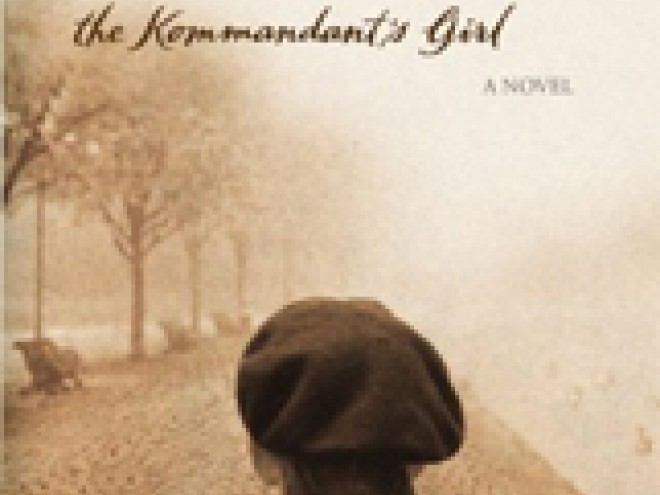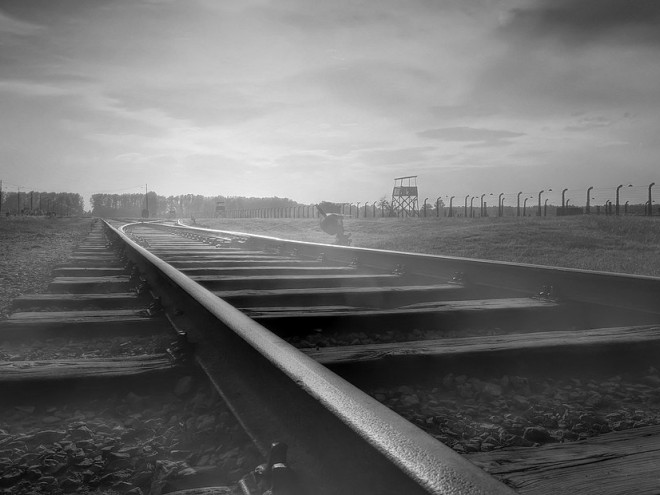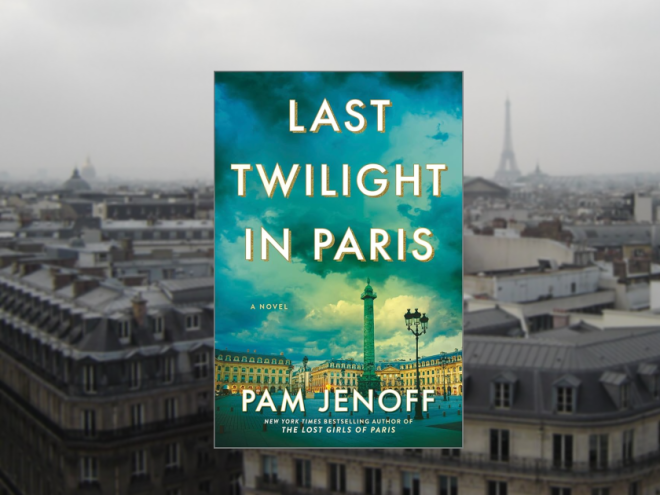In this three-part series for the Visiting Scribe, internationally bestselling novelist Pam Jenoff explores how her years in Poland changed her life and led her to writing books. Her most recent book, The Winter Guest, is now available.
Part I: Living the War
 I did not go to Poland to work on the Holocaust. A first tour Foreign Service Officer, I was sent to the U.S. Consulate in Krakow, Poland in the mid-1990s to stamp visas and passports, and help U.S. citizens who were arrested or hospitalized or otherwise in trouble. But I found myself in a unique moment in history: Poland had just come out of decades of Communism, where issues remaining from the Holocaust — important questions of anti-Semitism, property restitution, and preservation of the concentration camps — had been unresolved because open dialogue was suppressed and exchange between east and west was cut off during the decades following the war. These issues needed to be resolved for political reasons in order for Poland to join NATO and the European Union.
I did not go to Poland to work on the Holocaust. A first tour Foreign Service Officer, I was sent to the U.S. Consulate in Krakow, Poland in the mid-1990s to stamp visas and passports, and help U.S. citizens who were arrested or hospitalized or otherwise in trouble. But I found myself in a unique moment in history: Poland had just come out of decades of Communism, where issues remaining from the Holocaust — important questions of anti-Semitism, property restitution, and preservation of the concentration camps — had been unresolved because open dialogue was suppressed and exchange between east and west was cut off during the decades following the war. These issues needed to be resolved for political reasons in order for Poland to join NATO and the European Union.
I’d arrived in Poland, a young woman alone in my early twenties, half way around the world and truly isolated in a pre-cell phone, pre-internet universe. So I did what any nice Jewish girl would do: I gravitated toward the surviving Jewish community; I went to shul on Friday night (and it was Orthodox, a huge education for this girl raised in a suburban Reform community) and to the rabbi’s house for cholent on Saturdays. The elderly Holocaust survivors became like grandparents to me. And the U.S. Consulate, seeing my natural affinity for the people and issues, said “You handle Polish-Jewish issues.” (We were only eight Americans; it wasn’t terribly formal.)
So for the next two-and-a-half years, that became my job. When Elie Wiesel was upset about well-intentioned Polish boy scouts putting up stars and crosses on a field at Birkenau, I went there to try and resolve the issue. When then-First Lady Hillary Clinton wanted to tour Auschwitz, I spent a week there with the Secret Service. There were many difficult conversations about who had done what during the war. But there were rewarding moments too, like seeing the first property restitution law passed and bringing together Polish and American school teachers to talk about how to teach the Holocaust to their students.
My own life in Poland was similarly conflicted: on one hand, practicing as a Jew in Poland was rewarding, defiant in the face of what Hitler had tried to do. Despite the vast shadows, I could feel the Yiddishkeit on every street. But the war was so proximate, that in order to take my car to the mechanic, I had to drive past the camp in Schindler’s List. And you may be prepared to tour the gas chamber once, but what toll does it take on your psyche when you walk in for the 50th time? For me, the constant challenge was how to live life with the appropriate solemnity for what had happened there, but not see everyday as a graveyard.
I came back from my years in Poland profoundly changed by what I had experienced and I knew I wanted to write a book about it. Not just any book – I knew it would be a novel.
In my next post, I will talk about how my years in Poland led me to becoming a novelist.
Pam Jenoff is the internationally bestselling author of six novels, including The Kommandant’s Girl. Her latest is The Winter Guest, which will be published August 26, 2014. A graduate of GWU, Cambridge and Penn Law, Pam formerly worked at the Pentagon, as a diplomat for the State Department and as an attorney. She lives outside Philadelphia with her husband and three children where, in addition to writing and speaking, she is on the faculty of Rutgers Law School.
Related Content:
- Reading List: Pam Jenoff
- Essays: Wandering Jews
- Jewish Poland Revisited: Heritage Tourism in Unquiet Places by Erica T. Lehrer
- Portraits in Literature: The Jews of Poland, An Anthology edited and translated by Hava Bromberg Ben-Zvi



